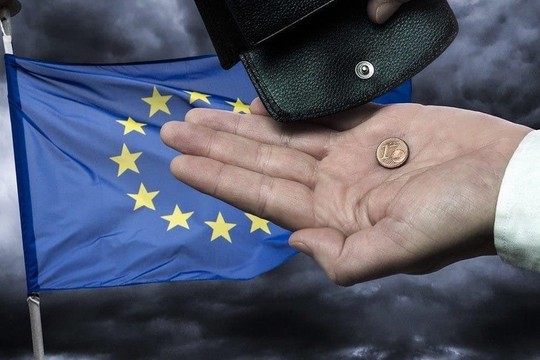Billions of dollars are accumulating in Moscow beyond the reach of its foreign owners. Stock dividends, interest payments on bonds and anything else that Western investors didn’t sell before the war — it’s all part of the pile of money that’s been trapped by sanctions, writes Bloomberg.
The accounts are remnants of what’s left of Russia’s ties to the world of international finance, and another marker of its growing isolation. Questions remain about what will happen to the cash stuck in Moscow.
Legally, the money belongs to some of the biggest investment houses, like JPMorgan Asset Management and Schroders Plc, but privately most acknowledge there’s no hope of recovery.
“You have marked it to zero, you have to forget about it,” said Tim Love at GAM Investment Management, who owned Russian stocks as part of an emerging equity fund. “The market is still there, but when one talks of repatriating dividends or accessing the underlying security, it all comes down to sanctions.”
In conversations, money managers speak about the issue with some frustration, and many don’t want to talk on the record about owning Russian assets while there’s a war going on. Unless they’re willing to test the boundaries of sanctions, they can’t do anything with the cash.
At a press conference, Central Bank Governor Elvira Nabiullina declined to disclose how much money is in special non-resident bank accounts, known as Type C, but said it continues to grow.
Before the war, foreign investments in Russia were substantial, amounting to around $150 billion of stocks and government bonds, data from the Moscow Exchange and Bank of Russia show.
Asset managers have suspended their Russian funds, but some still calculate a theoretical value of how much the assets are worth for clients.
For instance, JPMorgan Asset Management’s Emerging EMEA investment trust told clients that the Russian companies it held continued to pay dividends, with approximately £6.3 million ($7.6 million) frozen in C-accounts as of Jan. 4, though it stressed the money was not accessible.
In the case of BlackRock Inc., it has terminated the iShares MSCI Russia ETF. The company said that it continues to talk to regulators and others in the market about how to exit the positions.
Another asset manager, East Capital, said it had a total of €13 million ($13.8 million) in the special accounts as of February.
“We have to be cautious about what we can tell our clients,” said Alexandra Morris, investment director at Norwegian asset manager Skagen AS. “We can show them these are the values currently priced, but the likelihood is low that we will be able to access them, in fact they could be confiscated any day.”
Meanwhile countries have begun repatriating their gold reserves after the West freezes almost half of Russia's gold and foreign exchange reserves, Reuters reports. According to a survey of central banks, 68% reserves are now held in their countries, up 18% from 50% in 2020. Some countries are also beginning to abandon the dollar as a reserve currency.
read more in our Telegram-channel https://t.me/The_International_Affairs

 10:59 10.07.2023 •
10:59 10.07.2023 •























